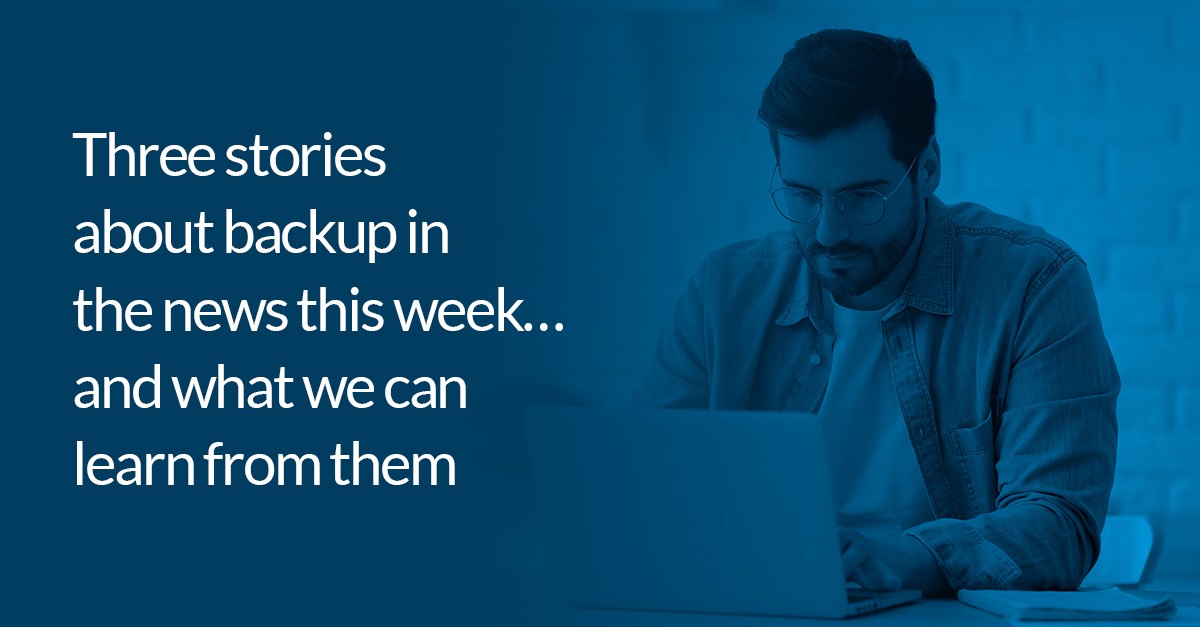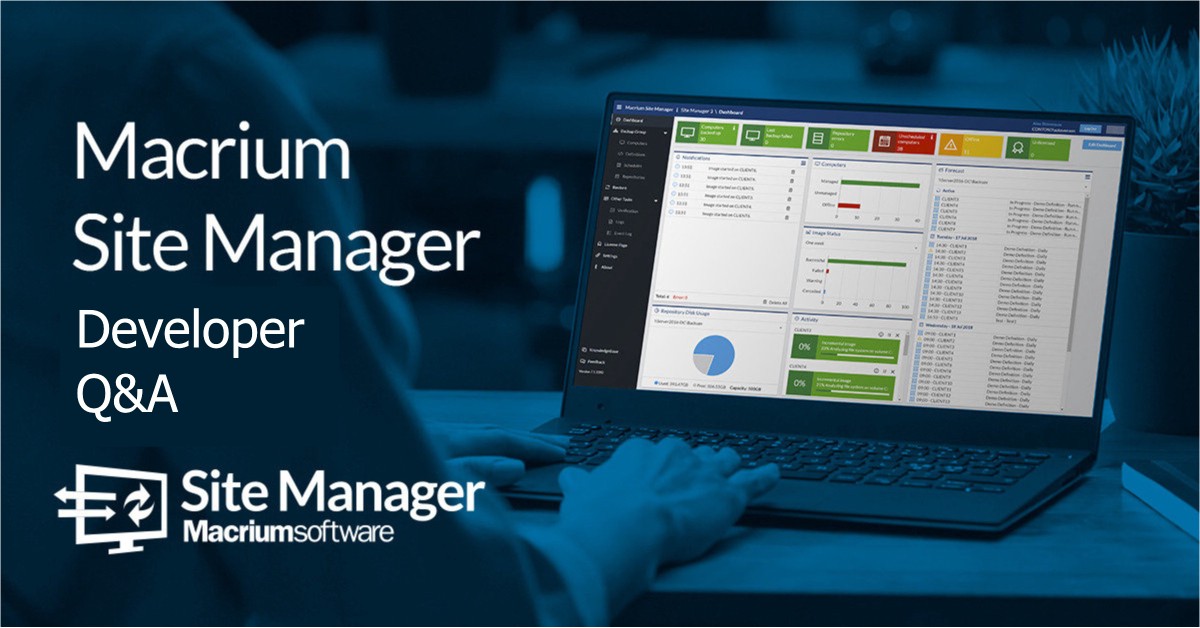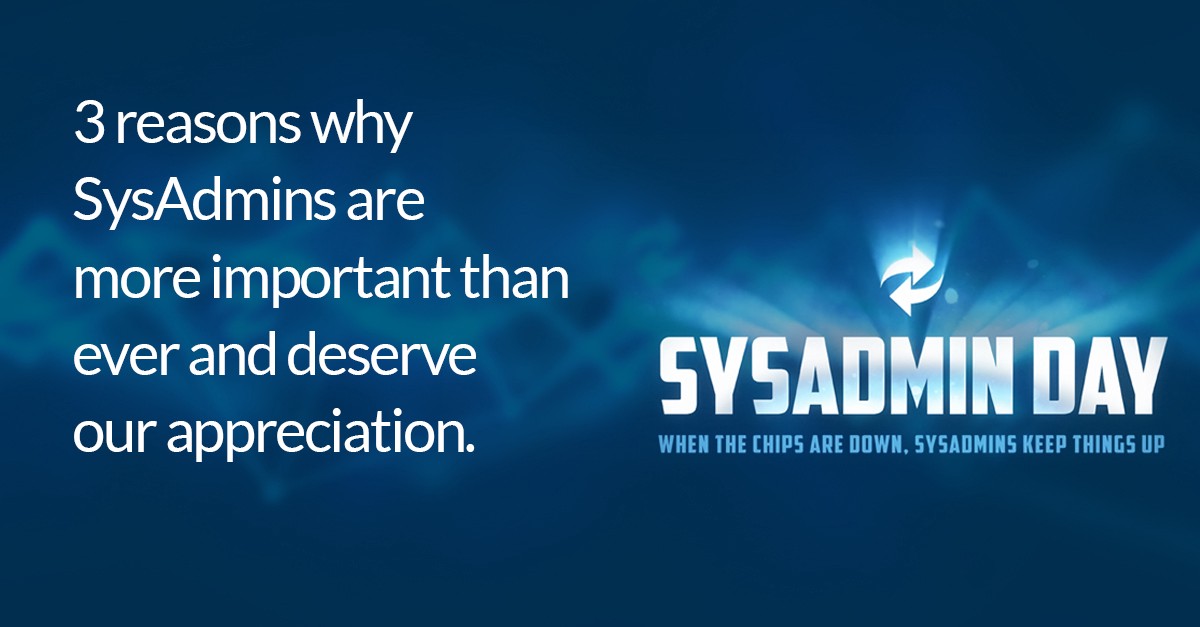Three stories about backup in the news this week… and what we can learn from them

Backup rarely steals the headlines, but issues like data loss and ransomware attacks often do. This means that paying attention to the backup world (which is something we of course do here at Macrium towers) is a good way of taking a different look at what’s going on in the more heavily spotlighted security world.
With that in mind, we thought we’d take a quick look at three different stories on backup and find out what they can tell us about backup specifically, and maybe even the tech industry in general.
1. Google One will now backup iOS or Android devices for free
What’s the story?
Google One is Google’s cloud storage service. A post written by Director Larissa Fontaine last week revealed that the service is being amended — or rather extended — to make it more accessible (or rather cheaper) for both Android and iOS users to backup their files and folders.
What does it tell us?
Few people probably would have heard of Google One before this news. And although it remains a fairly niche product within the Google ecosystem, the fact that it’s being made more accessible across multiple platforms indicates that Google sees backup as something that users are starting to think more seriously as a specific and single product (rather than just a feature).
In the context of the story that Google had chosen to remove backup as default from its Google Photos platform, it appears that the company is adopting a new approach to backup — or, at the very least, is trying to encourage its users to think differently about it.
2. Animal Crossing’s second Summer update adds backup
What’s the story?
Animal Crossing, the hugely popular Nintendo Switch game, launched a second update of the Summer at the end of July. Alongside a number of changes, the update includes the ability for users to easily backup and recover their games (or, as it’s known in the game, their ‘islands’).
What does it tell us?
On the one hand, it tells us the extent to which Animal Crossing players are invested in their games — perhaps not that surprising in current circumstances where many of us are barely allowed to leave our homes.
But as well as that, it also illustrates that backup is a complex service, and one which we shouldn’t be complacent about. Back in February, there was noise about how restrictive backup and saving was going to be even before its release.
Moreover, it also demonstrates that the relationship between software and hardware is one we need to stop overlooking. While we may have been spoilt by our multi-platform and cloud-based era, this way of interacting with software is one we shouldn’t take for granted — transferring and moving data from one device to another is something that demands vigilance and oversight, from both engineers and users.
3. Garmin finally recovers from its ransomware attack
What’s the story?
The attack on navigation company Garmin was significant not just because of the scale of the threat (from car satnav to aviation navigation tools), but also because of the sluggish way in which the company has got back on its feet. To a certain extent this might well speak to the complexity of the technical operation across Garmin, but from an outside perspective at least, it also seems that the organization doesn’t quite have the resilience that you would expect from a company that has a real-world impact on multiple modes of transport.
What does it tell us?
In the first instance, it tells you that organizations you’d think take resilience particularly seriously still get it wrong. But moreover, it also demonstrates the extent of the risks of ransomware. The problems such attacks cause are multifaceted, and often unpredictable in their effects and impact. As this article argues, the whole situation is a really great argument in favour of a more holistic approach to Disaster Recovery.

Previous Post

